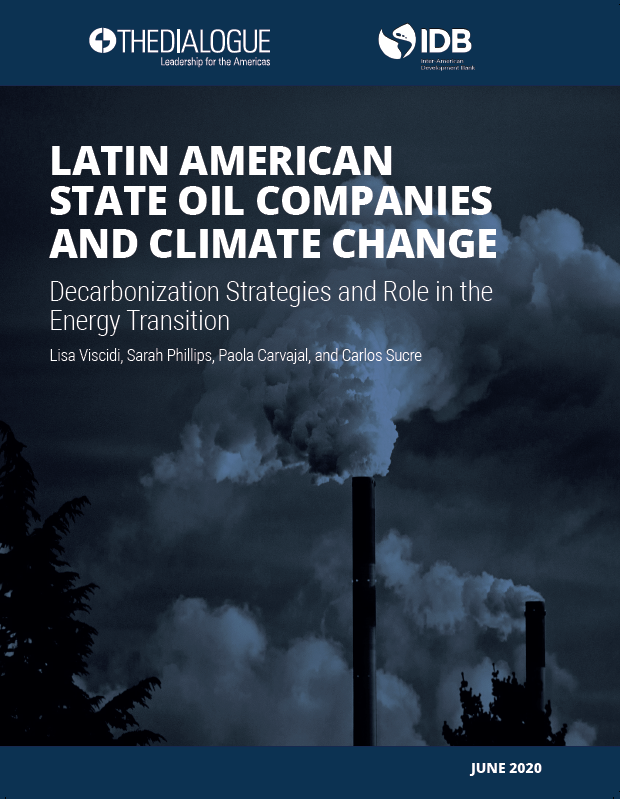Rising Brazil: The Choices Of A New Global Power
What should we expect from a newly powerful Brazil? Does the country have the capacity and leadership to be a central actor in addressing critical global and regional problems?
Latin American national oil companies (NOCs) have made important advances in slashing emissions from their operations through techniques such as reducing flaring, improving energy efficiency, and injecting CO2 for enhanced oil recovery, according to a new report by the Inter-American Dialogue and the Inter-American Development Bank. Yet, progress in producing lower carbon energy sources for consumers has been sluggish, no Latin American NOC has committed to net zero emissions, and for some companies emissions are on the rise, the report finds.
Oil and gas companies can play an important role in addressing the global threat of climate change. The majority of the world’s oil production and reserves lies in the hands of state-controlled entities, meaning NOCs play a crucial role in reducing emissions.
In Latin America—one of the world’s top oil producing regions—NOCs are central to their respective industries and make an important economic contribution in every major oil-producing country. This report examines the emissions mitigation strategies and drivers for five major NOCs in Latin America (Petrobras, Pemex, Ecopetrol, YPF, and Petroamazonas).

For more information, please contact Energy, Climate Change & Extractive Industries program director Lisa Viscidi at lviscidi@thedialogue.org
What should we expect from a newly powerful Brazil? Does the country have the capacity and leadership to be a central actor in addressing critical global and regional problems?
President Lula da Silva triumphantly announced that he and his Turkish counterpart had persuaded Iran to shift a major part of its uranium enrichment program overseas—an objective that had previously eluded the US and other world powers. Washington, however, was not applauding.
At the Inter-American Dialogue, José Miguel Insulza described the events of September 30, in which Ecuadoran police brought the country to a standstill after they rioted and trapped President Rafael Correa in a Quito hospital for several hours.
